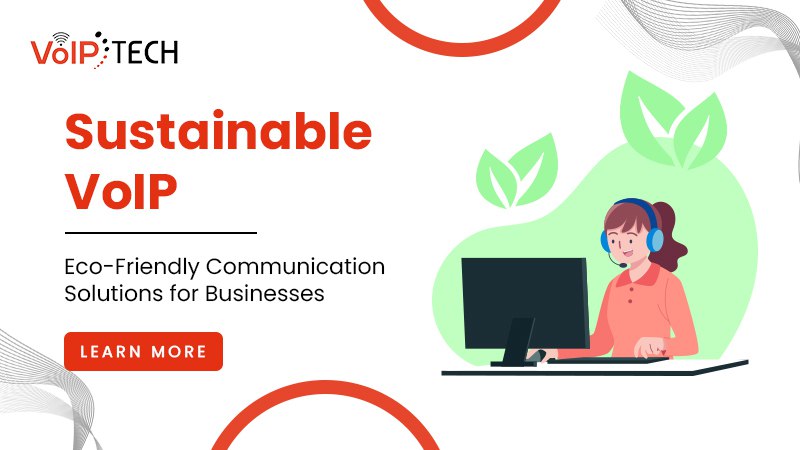Sustainable VoIP: Eco-Friendly Communication Solutions for Businesses

Businesses today are increasingly mindful
of their environmental impact. So they are seeking ways to reduce their carbon
footprint. One effective solution is adopting Voice over Internet Protocol
(VoIP) technology, which not only enhances communication efficiency but also
promotes sustainability. Here’s how VoIP can be a game-changer for eco-friendly
business practices.
1. Energy Efficiency
Traditional phone systems demand substantial
energy to function, from powering physical hardware to sustaining a vast
infrastructure. VoIP, on the other hand, leverages existing internet
connections and cloud-based systems, which are inherently more
energy-efficient. By reducing the need for dedicated hardware and
utilizing energy-efficient servers, businesses can significantly cut down on
their energy consumption.
2. Reduced Electronic Waste
The lifecycle of traditional telephony
equipment involves frequent upgrades and replacements, leading to substantial
electronic waste. VoIP minimizes this issue by relying on software-based
solutions and cloud infrastructure. This reduces the need for physical
hardware, thereby decreasing the amount of electronic waste generated.
3. Lower Carbon Footprint
VoIP enables remote work and virtual
meetings, cutting down the need for business travel. This not only saves time
and money but also cuts down on carbon emissions associated with commuting and
flying. By enabling seamless communication from anywhere in the world,
VoIP helps businesses operate more sustainably.
4. Paperless Communication
VoIP systems often come with features like
digital faxing, voicemail-to-email, and online billing, which help reduce paper
usage. By transitioning to digital communication methods, businesses can
further their commitment to sustainability and reduce their reliance on paper.
5. Cloud-Based Solutions
Adopting cloud-based VoIP solutions means
businesses can avoid the environmental impact of maintaining physical servers.
Cloud providers typically use highly efficient data centers that optimize
energy use and reduce waste. This shift not only supports sustainability
but also offers scalability and flexibility for growing businesses.
6. Sustainable Practices in VoIP
Implementation
To maximize the environmental benefits of
VoIP, businesses should consider the following practices:
- Choose Energy-Efficient Equipment:
Opt for VoIP hardware that meets energy efficiency standards.
- Utilize Virtualization: Implement
virtual servers to reduce physical hardware needs.
- Encourage Remote Work: Promote
telecommuting to minimize travel-related emissions.
- Opt for Green Data Centers: Partner
with cloud providers that prioritize sustainability in their operations.
Conclusion
Switching to VoIP is not just a smart
business move; it’s a step towards a more sustainable future. By reducing
energy consumption, minimizing electronic waste, and supporting remote work,
VoIP helps businesses achieve their environmental goals while enhancing
communication efficiency. Embrace VoIP technology and contribute to a greener
planet.



